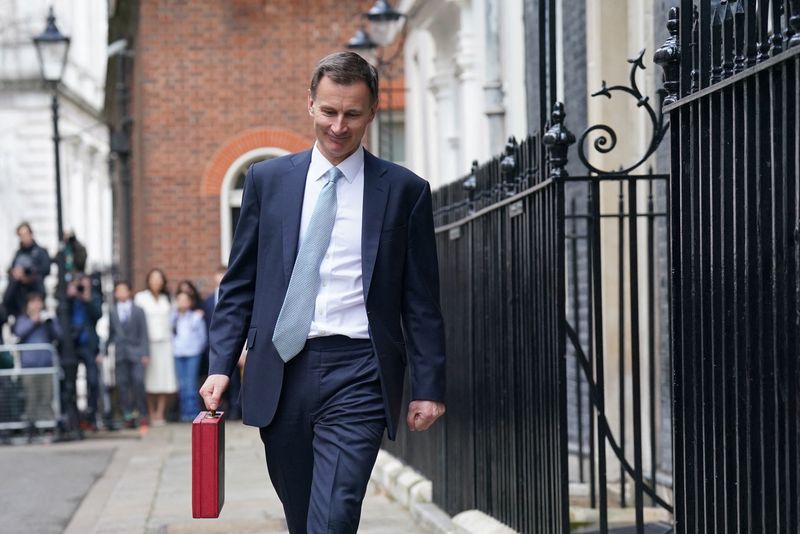Gold prices set for weekly gains on dovish Fed outlook; silver near record high
By Alistair Smout
LONDON (Reuters) -British finance minister Jeremy Hunt moved on Wednesday to abolish a long-contentious "non-dom" status that lets wealthy, often foreign residents avoid tax on overseas income, adopting a major policy of the opposition Labour Party before an election.
Non-domiciled status has often been used by billionaires living in London but who do not consider Britain as their permanent home, allowing them to opt to pay UK tax only on income earned in, or transferred to, Britain.
The Conservative government had previously defended the status, arguing it wanted to attract the wealthy to live and spend their money. But critics questioned why the richest should get tax breaks, saying it highlighted the unfairness in society.
The policy most recently hit the headlines in 2022 when Akshata Murty, the wife of Rishi Sunak, was revealed to be registered for non-dom tax status while he was the country's finance minister. She has since given up the status.
Sunak, now prime minister, was recused from the decision to scrap the status, to avoid any conflict of interest, his office said.
Announcing his party's U-turn, Hunt said he had always believed that those with the "broadest shoulders" should pay their fair share, as long as any new system protects the UK's attractiveness to international investors.
"I have concluded that we can indeed introduce a system which is both fairer and remains competitive with other countries," he told parliament during his annual budget, adding that new arrivals would pay tax on foreign income and gains after four years of UK residency.
He said Britain would raise 2.7 billion pounds ($3.4 billion) a year by changing the policy, which was first created in 1799 to shelter those with foreign property when Britain had an empire.
While the sums are not huge, the policy change will create a headache for Labour, which had vowed to scrap the status to help fund investment in the state-run National Health Service.
Hunt said the government would use the money to help fund tax cuts. It also announced some increased funding for the health service, throwing Labour's fiscal plans into disarray.
A spokesperson for Labour told reporters the party stood by its commitments for more investment and said it would look at government spending plans.
Party leader Starmer said it was a "desperate move after years of resistance", and that the government was "totally bereft of ideas".
"The harder they (the Conservatives) try with cynical games like this, the worse it will get for them," he told parliament. ($1 = 0.7863 pounds)
